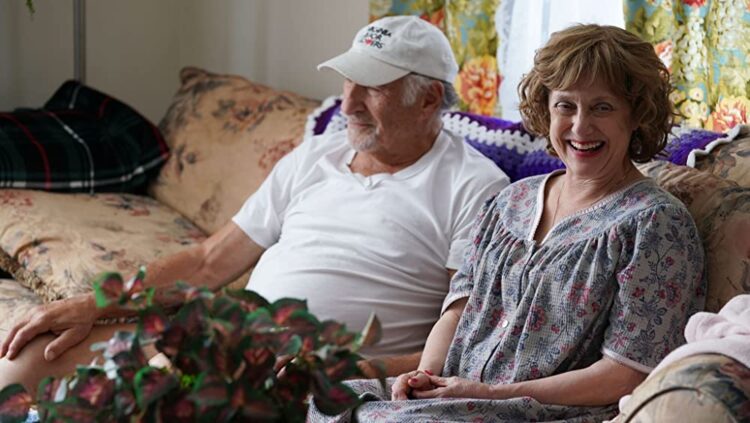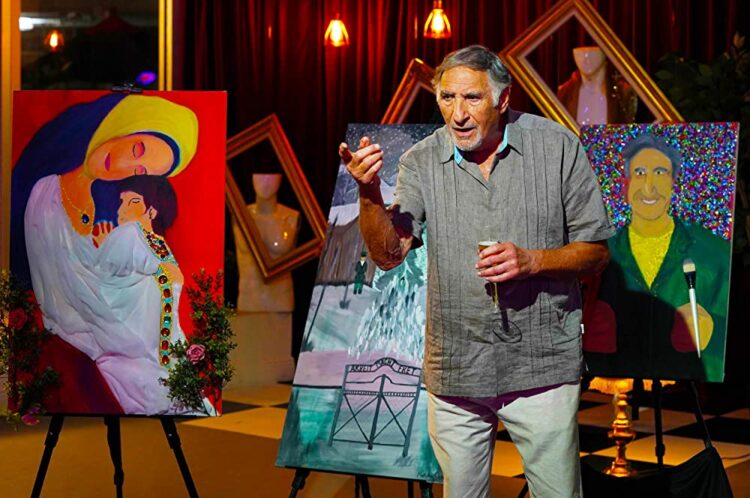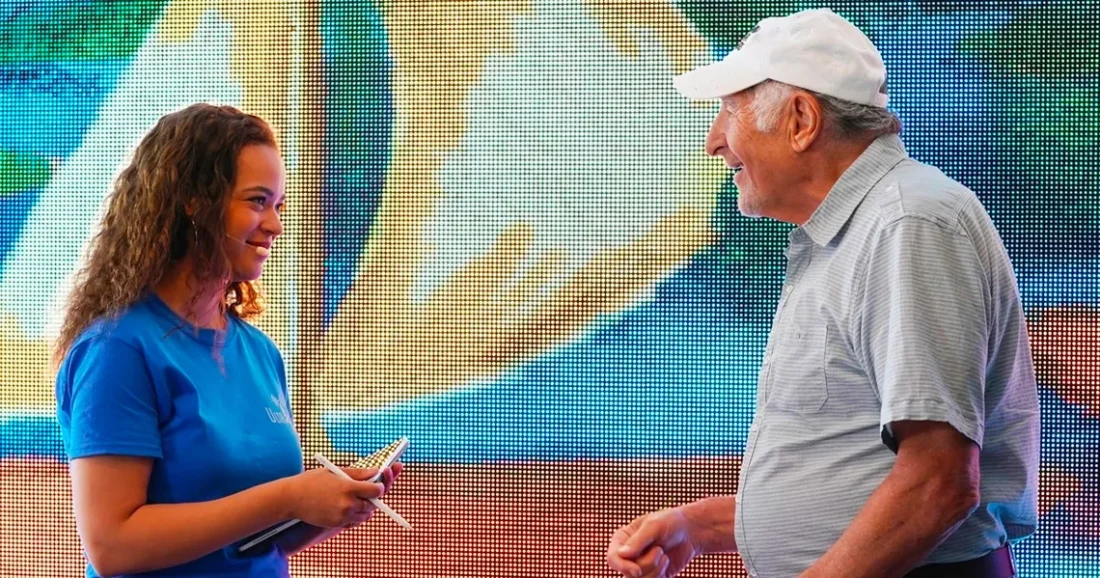Marvin Samel’s feel-good movie, iMordecai, traces the steps of a Polish Holocaust survivor who finds new meaning in life after his son buys him a cell phone.
Based on a true story, it will be available on VOD platforms starting on April 4.
Partly animated, iMordecai is set in Miami Beach, a mecca of Jewish sunbirds and the home of Mordecai Samel (Judd Hirsch), a retired plumber and house painter, and his wife, Fela (Carol Kane), who are in the sunset of their lives.
In the first scene in which he appears, Mordecai is enveloped in a cloud of dust and grit. Wielding a noisy jackhammer, he is remodelling a bathroom in his condominium. Although he is well into his dotage, he is still handy around the house. As he recalls his days as a plumber, he jokes that he turned “shit into money.”
When his son, Marvin (Sean Astin), advises him to acquire a cell phone, Mordecai resists. An old school type, he prefers using a land line telephone. Nevertheless, he reluctantly accompanies Marvin to a phone store. “I don’t even know what I’m doing here,” he complains loudly. Before he leaves the shop, he meets a friendly salesperson named Nina (Azia Diner Hale).

Frustrated by the apparent complexities of his new acquisition, Mordecai decides to return it. He changes his mind after Nina offers him a few lessons. Mordecai takes a shine to Nina, at least platonically.
At this point, Fela is diagnosed with dementia, and Marvin encounters cash-flow problems with his fledgling cigar business. Mordecai is unduly rough on Marvin. “I raised a schmiel,” he groans, using a well-worn Yiddish word for an incompetent. Later in the film, after one of his deals collapses, Marvin sours on Mordecai.
Hirsch sinks into his role as a curmudgeon with ease and confidence, but Kane is relatively weak as a submissive wife. Hale exudes the freshness and vitality of youth.

The animated segments, which appear periodically, add zest to the film. In the main, they refer to two events: Mordecai’s birth in a village in eastern Poland in 1933 and the entry of Soviet troops into the region in 1939. These references are underdeveloped, as is Mordecai’s life in Israel after World War II.
Mordecai’s fond memories of Poland before the war are evident as he shows Nina vintage photographs of his family, some of whom perished in the Holocaust. Not a single photograph is of his mother, whose face he can’t remember.
Nina likes Mordecai, too, and the pair spend time together at an amusement park, on a beach, in a restaurant and in a comedy club, causing Fela to grow needlessly suspicious of their friendship. Nina encourages Mordecai to take up artistic painting, and the works he produces impress her.

These activities invigorate and uplift Mordecai, making him feel less like an old man and more like an active member of the community. “It’s nice to have family and friends,” he says in a moment of exuberance.
Mordecai’s relationship with Nina hits a bump in the road when she discloses a dark secret, but they manage to resolve the fleeting crisis.
While iMordecai is mildly entertaining, it is hardly riveting or memorable. It is one of those conventional middle-of-the-road movies you watch and forget shortly afterward.
